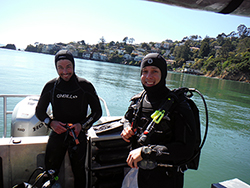
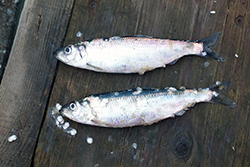
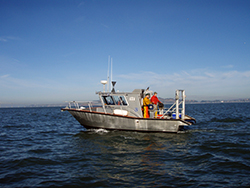
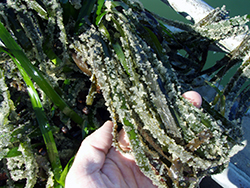
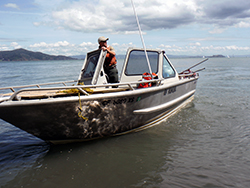
The Pacific herring – much like squid and anchovy – is an important forage fish that supports a commercial fishery and provides a prey source for all manner of fish and wildlife, including whales, seals, sea lions, sturgeon, salmon, pelicans and numerous other species of birds and invertebrates.
The largest population of Pacific herring in California spawn in San Francisco Bay, and since 1972, CDFW has been responsible for monitoring and managing their numbers. CDFW uses annual vegetation dive surveys and spawn (herring eggs) surveys to calculate a population estimate each year. CDFW also uses commercial fishery and mid-water trawl survey information to look at the composition and general condition of the spawning population.
CDFW has just completed and posted online the  2016-17 San Francisco Bay Season Summary for the Pacific herring fishery. The good news is that the spawning population, estimated at 18,300 tons, is up slightly from the 2014-15 and 2015-16 seasons. But it is still far below the historical average of 49,400 tons. Less than ideal ocean conditions are cited for the below-average numbers.
2016-17 San Francisco Bay Season Summary for the Pacific herring fishery. The good news is that the spawning population, estimated at 18,300 tons, is up slightly from the 2014-15 and 2015-16 seasons. But it is still far below the historical average of 49,400 tons. Less than ideal ocean conditions are cited for the below-average numbers.
CDFW closely regulates the commercial Pacific herring fishery in the San Francisco Bay, setting quotas, season dates and using the commercial catch data to help further analyze the size, age and condition of the spawning population. Typically about six inches long, the fish primarily are harvested for their roe, which is prized in Japan. CDFW maintains a blog on the species called the  Pacific Herring Management News.
Pacific Herring Management News.